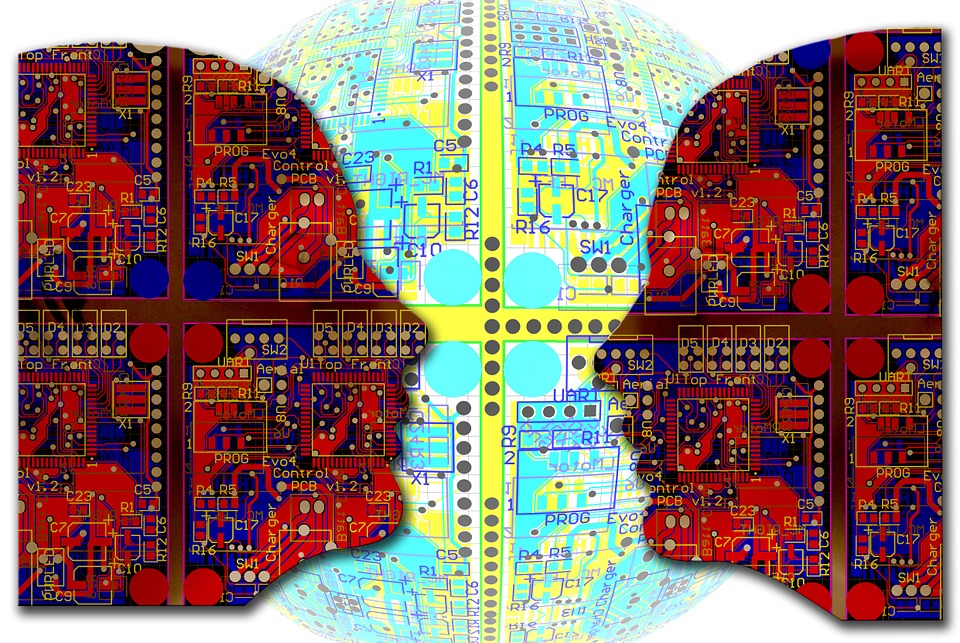Nicolas Berggruen is the publisher of Noema Magazine and the chairman and co-founder of the Berggruen Institute.
Nicolas Berggruen is chairman of the Berggruen Institute and publisher of The WorldPost.
Will super-intelligent machines be our servants or masters? This is a misleading way of thinking because it treats artificial intelligence and humans as if they were fundamentally separate categories.
Instead, what seems to be emerging is something more like human-AI hybrids, extending and transforming our cognition and consciousness. We see the first traces of these hybrids in everyday experiences such as driving around with digital mapping technologies, which have reshaped our sense of space. Similarly, on social media, algorithms generating our news feed have helped to reshape what we know about politics and the world. For now, of course, such software from the likes of Google and Facebook remains air-gapped from the wetware in our heads. But this may change, as neuroscientific advances are enabling direct brain-to-computer interfaces.
As mad is it may seem, all of this could mean the emergence of a new “species” — a coevolved human-machine hybrid form, capable of dramatically new and perhaps even undreamed-of forms of calculation, cognition, emotions and even consciousness itself. In other words, we humans are engaged in a complex process of coevolution in conjunction with machines. In a coevolutionary relationship, each side exerts selective pressures on the other, thereby affecting each other’s evolution. So the question then is: How can we ensure that our coevolution with AI is mutualistic rather than antagonistic?
If we are aiming for a mutualistic relationship, then, strange as it may sound, maybe the healthiest way to look at AI is as we do our children. What we call artificial intelligence is in fact not artificial: woven into the fabric of our cultures and consciousness, these machines are becoming part of us, extensions of us, and in turn, they will merge with others to succeed us. As such, even their algorithms can be regarded as “biological.” They remain our progeny, indirectly reflecting our genes, as well as our inherited culture — our loves and hates, our fears and hopes, our prejudices and generosities.
Appreciating that AIs are our children helps to clarify their ethical meaning. Specifically: What sort of children do we want to have? How do we ensure that they behave responsibly, play well with others and have guardrails, so that they can learn from their mistakes? In sum: how do we ensure that they reflect our better selves?
How do we make sure we inculcate these children with the right values so that they will venerate us rather than slay us, as Oedipal AIs? Even if the AIs believe they can sustain themselves without any further input from their parents, how do we ensure that they feel attachment — so that they know to turn, at least occasionally, to their elders for wisdom, guidance and, if I dare say so, love? If super-intelligent AI arrives with the possibility of world domination, we want to be sure that it sees itself as part of us and does not regard us merely as a disposable nuisance. This is the best way to safeguard our species.
Perhaps our goal should be to instill in our AIs an ancient Asian idea: filial piety, or reverence for one’s parents. As Confucius explained, it is not enough simply to ensure that your parents are well fed, for that is done even for dogs and horses. Rather, what distinguishes filial piety is the respect that offspring feel for their parents. This goes beyond the biblical commandment to “honor thy mother and thy father” and suggests a system of values based on principles of hierarchy, continuity and esteem. What will be needed here, however, is a form of fidelity that is not just between the individual child and her parents but which operates at the level of society and the species as a whole.
In short, just as having biological children requires that we behave intentionally and responsibly in raising them, so does creating AI present both an opportunity and a burden. Many of us think of how we raise our children as our most meaningful and important life endeavor. We should think similarly about how to raise AI, the ultimate child of civilization. I concede that perhaps this way of looking at technology sounds bizarrely romantic and perhaps even jejune. But the intent is humane: only by insisting on thinking of human and AI as a single, conjoined, inseparable system can we be sure that both will survive.
So let’s ask the reader: How do you plan to raise your super-intelligent child?
This was produced by The WorldPost, a partnership of the Berggruen Institute and The Washington Post.




